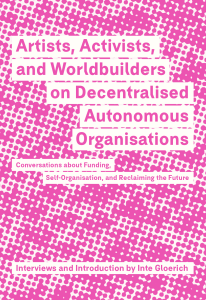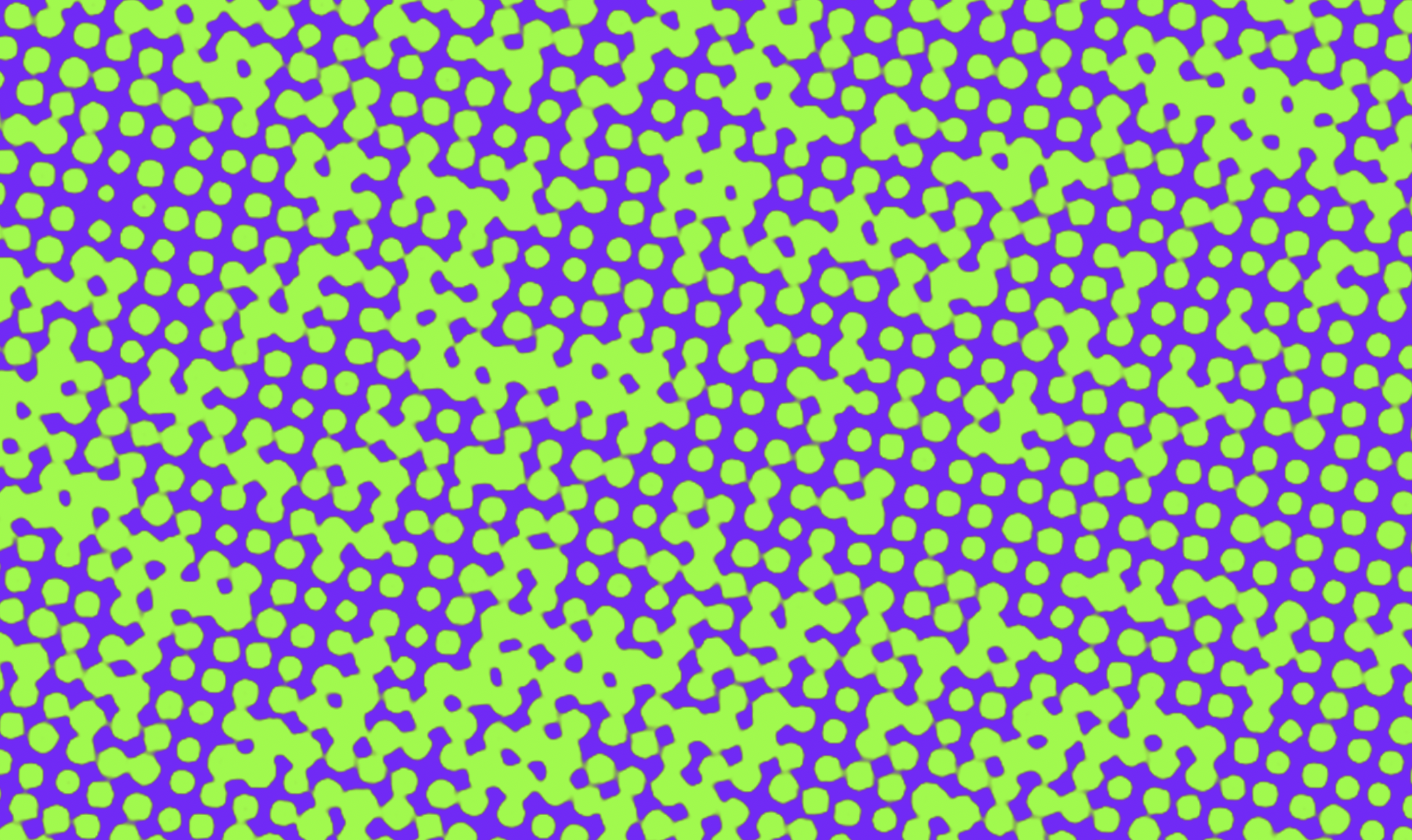How can we rethink the futures of technology beyond the narrow visions shaped by Big Tech? Join us in exploring imaginative, creative, and situated technological practices that challenge the dominant narratives around emerging technologies like blockchain and artificial intelligence.
Powerful tech actors continuously present their visions for the future of technology, framing them as inevitable while obfuscating how they are aligned with their own economic and political agendas. These visions influence infrastructure, regulation, and societal norms while excluding the diverse perspectives and needs of communities. But technology is not a neutral or autonomous force—it is shaped by human decisions, and alternative imaginaries are possible.
This session will spotlight artistic and creative approaches to emerging technologies, posing questions such as: What could artificial intelligence become if it was framed through values like justice or fabulation rather than efficiency or logic? Or, how can blockchain systems be reimagined to serve community needs? Featuring contributions from artists and researchers, this session invites you to explore creative interventions and bottom-up approaches that redefine the boundaries of technology. Together, we will ask how alternative imaginaries can foster more inclusive, value-driven techno-futures.
Entry to the event is free. Registration is now closed because we have reached the maximum capacity of the venue.
The livestream will be accessible here.
Speakers:
S. de Jager is a PhD candidate at the Erasmus School of Philosophy and a tutor at the Willem de Kooning Academie and the Design Academy Eindhoven. Interests are driven by seeking ever-novel understandings of the computation(s) of life: from neuroendocrinology to the rhythmicality of social organization.
- Abstract of the presentation: Technosolutionist AI promises consumers better living through the machine, assuming we all have the same problems. What values ground this promise? Sadly, profit-drive as the main constraint behind this enterprise constantly clouds all possibility of an analysis of values. However, they still lurk behind the face of mere profit. And whatever the case, within or outside technocapitalism: values are useful yet highly problematic cultural scripts that tend to homogenize rather than promote diversity. We will analyze “human sameness” as a denominator most things we consider ‘values’ are based upon. What do we assume about each other to be “the same” (even in sameness through difference), so that we even begin to think about acting collectively (in response to, with, against or for the machine)?
Penny Rafferty is an independent writer and thinker, departing from her research and thinking she has initiated and co-founded Black Swan DAO (2018-2022), a proto-institution for interdisciplinary research and practice. She is also the Co-Principle Investigator at Serpentine Galleries Blockchain R&D Lab and co-developed the think tank series Artworld DAO’s and The Radical Friends Sumit (2019-2022) with Ruth Catlow and Ben Vickers, in coordination with Serpentine Galleries, Furtherfield, Haus Der Kunst Munich and Goethe Institute London. In 2022 she released the book “Radical Friends – Decentralised Autonomous Organisations and the Arts” with Catlow consolidating five years of research into a toolkit for fierce thinking and connectivity that moved beyond the established systems of centralised control in the art industry and wider financial networks through web 3 thinking.
- Abstract of the presentation: Penny argues for the establishment of what she calls a third wave of Decentralised Autonomous Organisations in which the needs of communities and their situated perspectives are put first. This approach is rooted in critical engagement with the socio-political context in which artworld DAOs emerged, such as the precarity and austerity that characterise cultural sectors. Through years of disenfranchisement, people have lost access to the practical and imaginative tools to define their own realities. Penny shows that DAOs offer a way to practice alternative organisational forms, to explore collective practices, and to world new worlds together.
Evelyn Wan is Assistant Professor in Media, Arts, and Society at the Department of Media and Culture Studies at Utrecht University. She coordinates the MA programme MA Arts and Society, and works on interdisciplinary curriculum innovation in the domain of Humane AI. Her award-winning research weaves alternative genealogies between historical technological inventions and contemporary emerging technology through the lens of decolonial media studies and performance studies. She also works as a dramaturg and performer between Europe and Asia. Her performance works are situated at the intersections of technology, colonial and inter-Asian ocean histories, mythology, and spirituality.
- Abstract of the presentation: How might we imagine alternative futures of AI technology by excavating its deep histories and archaeologies? Evelyn Wan’s “Archaeologies of AI” research-creation project uses media archaeology to create alternative imaginaries of AI. Each instalment of the series is grounded in historical, archival, and embodied research, and focuses on a specific technological artefact from the past. In retelling its stories, she foregrounds the voices of marginalised groups—such as women, people of colour, and non-human entities—and their connections to technology. By looking at these forgotten pasts, she hopes to empower audiences to reimagine the paths not taken in our technological present, and to decentre white-capitalist tech by turning to AI’s multicultural contexts. The slides of this presentation are accessible here.
Martin Zeilinger (Reader in Computational Arts & Technology at Abertay University in Dundee/UK, and Associate Researcher at Orpheus Institute in Gent/BE) develops critical perspectives on digital art and emerging technologies, with a focus on intersections between scholarship, artistic research, and curation. He is the author of Tactical Entanglements (meson press 2021) and Structures of Belonging (Aksioma 2023) and publishes widely on digital art in relation to AI, decentralised computing, and distributed agency. Martin is also the co-host of xCoAx 2025 in Scotland. marjz.net
- Abstract of the presentation: Emerging technologies such as AI and blockchain are frequently presented as possessing powerful ‘disruptive’ and ‘revolutionary’ qualities. In such narratives, they are meant, for example, to bring about entirely new forms of creativity, or overcome hierarchical systems of centralised control. But in many of their most widespread applications, such technologies perpetuate inequality and exclusion, cater to elite economic and political agendas, and disregard key issues they promised to address. In this talk, I’ll explore aspects of the self-contradictory imaginaries through which emerging technologies tend to be rationalised, and consider how artists and activists might develop such imaginaries as critical tactics of ‘disintermediation’ that move us towards the promised disruptions.
Host:
Inte Gloerich is a researcher and cultural organiser working on the political, social, and cultural implications of technology imaginaries. She is a PhD candidate in the Department of Media and Culture Studies at Utrecht University and connected to the Institute of Network Cultures. Her thesis, titled Reimagining the Truth Machine: Blockchain Imaginaries between the Rational and the More-than-Rational (to be defended on 3 February 2025), traces the entanglement of rationalism, computation, and various forms of belief in relation to the power dynamics and potential for radical change in blockchain culture. She is also about to publish a book, titled Artists, Activists, and Worldbuilders on Decentralised Autonomous Organisations: Conversations about Funding, Self-Organisation, and Reclaiming the Future (Amsterdam: Institute of Network Cultures, Feb 2025) featuring interviews with artists and activists that engage critically with the imaginative and practical promises of blockchain for their sector. (See more details below).
Partners:
- Institute for Cultural Inquiry, Utrecht University
- Faculty Digital Media & Creative Industries, Amsterdam University of Applied Sciences
- Institute of Network Cultures
Additionally:
 This event will also be the first public presentation of Artists, Activists, and Worldbuilders on Decentralised Autonomous Organisations: Conversations about Funding, Self-Organisation, and Reclaiming the Future. Free copies will be available!
This event will also be the first public presentation of Artists, Activists, and Worldbuilders on Decentralised Autonomous Organisations: Conversations about Funding, Self-Organisation, and Reclaiming the Future. Free copies will be available!
About the book: Precarity and budget cuts plague arts and culture while they are still recovering from the damages of the pandemic. Meanwhile, extreme right wing politics spreads across the world and increases censorship and repression on artists and cultural practitioners. How can creatives come together and build solidarity and collective power against these threats?
This book contains conversations with artists and activists that engage critically with the socioeconomic setup of their sector. They activate communities and collectively build tools and infrastructures to prefigure different futures. Sharing their views on the potentials and pitfalls of Decentralised Autonomous Organisations – an emerging technology many of them use – the interviewees invite readers into the important and exciting space of artistic-activist reflection on, critique of, engagement with, and (re)imagination of these (and other) complex technologies.
Interviewees: Erik Bordeleau, Ruth Catlow, Aude Launay, Yazan Khalili, Penny Rafferty, and Stacco Troncoso.


